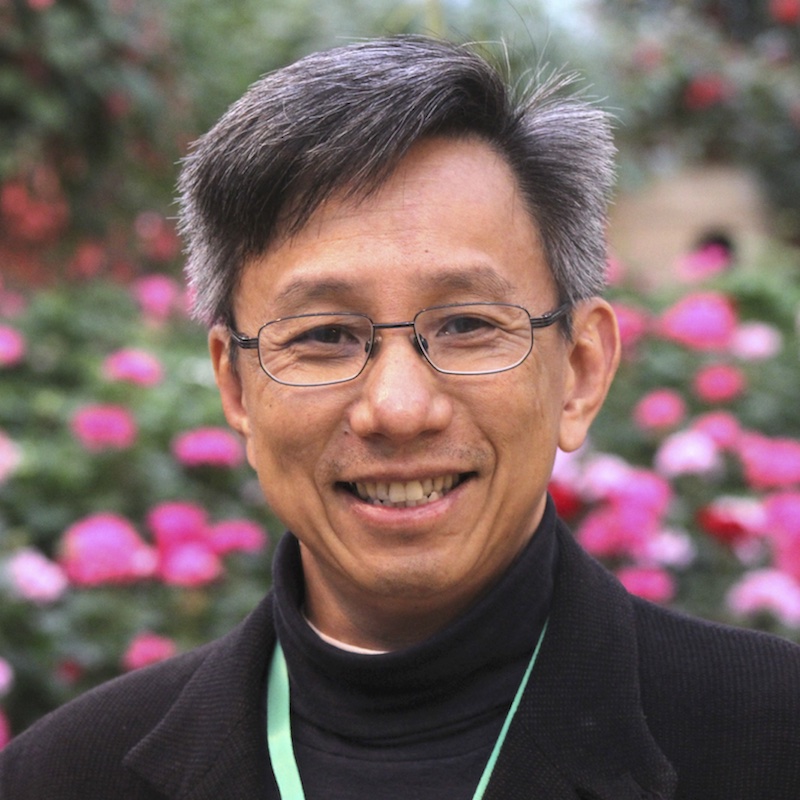- Professor of Network Engineering, School of
Engineering and Computer Science, Victoria
University of Wellington, New Zealand
- Chairman (2009), Vice-Chairman (2007-2008),
ACM Singapore Chapter
- Leader, Wireless Sensor Networks Group,
Networking Protocols Department, Institute for
Infocomm Research (I2R),
Singapore (Jul 2007 to Oct 2009)
- Principal investigator and leader of underwater networks group in I2R
(Apr 2005 to Oct 2009) focusing on the research and
design of a robust, energy efficient architecture
for underwater ad hoc and sensor networks. Key
aspects of the research include:
- Multipath virtual sink network architecture
- Cross-layer protocol design
- Distributed localization
- Topology management
- Network support for realtime tracking
underwater
- Principal investigator of a multi-disciplinary
multi-organization research project “The All-teRrain Advanced NeTwork of Ubiquitous MobiLe Asynchronous Systems (TARANTULAS)”
from
Apr 2003 till its completion in Jun 2006. The
project involved research, design and development of
a network architecture and protocols that integrate
an infrastructure-less location estimation system to
support the command, control and communication needs
of the network of mobile autonomous systems working
together in collaboration with a smart environment
to accomplish a mission. Project team comprised more
than 20 active research staff members and graduate
students from three research areas: communications
and networking, RF and localization, and robotics.
- With the formation of I2R,
appointed as Manager of the Networking Department
for a 2-yr term from April 2003 to March 2005.
Responsibilities include identifying high impact
research areas in the area of networking, planning
department research roadmap, and ensuring that the
department (which comprises 30 research staff and
more than 20 postgraduate students) meets the
objectives set by A*STAR and I2R
Executive Director.
- Serving on the Steering Committee of the
Asia-Pacific IPv6 Task Force since its formation (as
one of the two Singapore representatives). This is a
regional task force currently made up of national
IPv6 promotional and research groups from nine AP
economies.
- In period 1999-2002, as Director of the
Internet Technologies (ITEC) programme in the Centre
for Wireless Communications (CWC) and the Institute
for Communications Research (ICR), started the ITEC
programme in late 1999, defined the research focus,
planned and managed its execution over the period
2000 to 2002, culminating in a successful
demonstration during the annual ICR seminar in Sep
2002. Key aspects of the programme, like the mobile
middleware project (AMASE) and the IPv6 activities,
have attracted significant industry interests
locally as well as in the Asia Pacific region. The
Internet Technologies programme involved more than
30 fulltime research staff and trained as many
postgraduate/undergraduate students. As programme
director, I also served on the CWC/ICR Executive and
Research Committees, both of which were corporate
management roles.
- Project manager for two joint research
projects with Siemens AG on Mobile Internet in
1999-2001; responsible for the definition of the
project scope and timely execution. The timely
execution and successful completion of these
projects led to the setup of a Siemens research and
development centre in Singapore.
 |
- Since 2010, NWEN404 Moble Computing, NWEN401
Distributed Systems Design, NWEN402 Internet
Engineering and NWEN302 Computer Network Design; since
2011, ENGR302 Group Project, ENGR401 Professional
Practice, School of Engineering and Computer Science,
Victoria University of Wellington, NZ.
- Undergraduate courses: CS4274 Mobile Computing
(Jan 2003 ~ Jun 2006) and CS3103
Computer Networks II (Jan 1999 ~ Dec 2002),
Department of Computer Science, School of Computing,
National University of Singapore (NUS), Singapore.
- Postgraduate courses: EE6108 Computer Networks
(Aug~Oct 2009), School of EEE, College of Engineering,
NTU; EE5408 Mobile Computing (Jan 1998 ~ Jun 2003),
Dept of ECE, Fac of Engineering, NUS,
Singapore.
- Graduated 7 PhD and 31 MEng/MSc students in the
areas of Mobile Ad Hoc and Sensor
Networks, and QoS and Security for
mobile/wireless networking.
- Thinking
of pursuing a postgraduate degree (PhD or Masters)?
You may find the following useful:
- Some tips
when contacting me (or anyone else whom you wish
to be your thesis advisor):
- Don't
exalt your credentials, awards, work experience,
etc. Don't tell me you come from the (or one of
the) premier institution(s) in your country! The
facts and figures are in your transcripts and
other supporting documents.
- Sending
the same request (email) indiscriminately to
multiple faculty members in the same
department/school doesn't increase your chances.
In fact, it will work against you! Be sure of
what you want to do research on, look for the
faculty members with research interests matching
yours, then contact them. (By the way, don't
just visit their websites and copy their
research interests!)
- When you
prepare your research proposal, stress on why
you want to do a PhD and the importance of your
proposed area of research. Show that you have
read the recent literature, i.e. publications,
in the area and know what is happening.
- Lastly,
read the papers written by the person whom you
wish to contact; don't just look at what he is
proposing! The ability to supervise you on new
hot research topics comes with experience and
track record (publications, citations, past
research grants, etc.)
- Research topics
for prospective graduate students to consider
include (but not limited to) the following:
- Wireless Sensor
Networks
- Energy-Efficient
Localization in Wireless Sensor Networks
- Mobile
Sensing using Smartphones and Community Devices
- Wireless
Protocol Design for Body Area Sensor Networks in
Healthcare
- Intuitive
Sensing and Actuation using Biological,
Environmental and Physical Signals (including Exploiting
RF Irregularity in WSNs)
- Next Generation Networks
- Sustainable Networks
|
- Establishing Trust in Internet of Things using
Physically Unclonable Functions and Blockchains, Royal
Society of New Zealand, July 2018 Catalyst Seeding:
General, Ref. No. 18-VUW-043-CSG, February 1, 2019 –
January 31, 2021, NZ$79,750.
- Software-Defined Green Internet of Things, Huawei NZ
Research Programme, July 2016-June 2019, NZ$500,000.
- Scalable Traffic Classification in Internet of Things
(IoT) for Network Anomaly Detection, Jan-Dec 2018, ISIF
Asia Network Operations Research Grant, US$34,000.
- Handover Prediction for Mobile Internet of Things,
2017 University Research Fund, NZ$25,076.09.
- Traffic classification in Enterprise Networks using
Software Defined Networking, InternetNZ Internet
Research funding round 2015, ref: IR-201502, 16 months,
NZ$30,000.
- Performance Evaluation and Analytical Modelling of SDN
and OpenFlow-based Networks and Systems, NZ-Japan Joint
Research Programme, ref: JSP-VUW1401-JR, Apr 2015 – Mar
2017, NZ$60,000.
- VUW Grant “Why age-old pillars of networking protocols
fail in the Internet of Everything”, 2015 University
Research Fund, NZ$25,000.
- EQC Biennial Grant “Wireless Sensing System for
Land Movement Monitoring and Landslide Detection”,
Mar 2014 – Feb 2015,
NZ$57,288.
- EC Framework 7, Erasmus Mundus Action 2 – Strand
2 – Partnerships Call for Proposals EACEA/38/12,
THELXINOE - Erasmus Euro-Oceanian Smart City Network
consortium led by University of Malaga, Spain,
2013-2017. (PI, representing School of Engineering and
Computer Science, Victoria University of Wellington.)
Total award € 1,188,350, shared by 10 partners.
- INZEC India Studies Research Grant, “Communications
and networking technologies for smarter, more
efficient power distribution systems”, Jul 2013 –
Dec 2014, NZ$28,000.
- VUW Grant “Wireless Patient Monitoring”,
2013 University Research Fund, NZ$50,000.
- VUW Grant “Addressing Fundamental Flaws in
Routing for Wireless Multihop Networks”, 2012
University Research Fund, NZ$36,288.75.
- RSNZ/IMF Grant “Establishing Collaboration on
Smart Grid Network Engineering”, 2011 International
Mobility Fund, NZ$6,090.
- VUW Grant “Characterization of Energy Harvesting
for the Design of Wireless Sensor Networks”, 2011
University Research Fund, NZ$32,434.90.
- RSNZ/ISAT "Establishing research network on
sustainable environmentally friendly wireless networks
for sensing and communications", 2010-2011 Bilateral
Research Activities Programme, NZ$8,000.
- IPENZ FutureInTech Visiting Industry
Professional Funding, May 2010 – Apr
2011, NZ$5,000.
- DSTA/Mindef “Design of Autonomous UUV
Communication architecture”, Oct 2008 – Dec
2009, S$892,156.
- DSTA/Mindef “Delay Tolerant Networking for
Extreme Scenarios”, Nov 2008 – Oct
2009, S$311,600.
- DSTA/Mindef “Force Tracking for Urban
Environment”, Nov 2008 – Aug 2009, S$245,428.
- French STIC-Asie programme “MANET and Mesh
Interconnectivity in Vehicular Ad hoc Networks
(MAMI)”, 2-yr funding to set up network of research
collaboration among French and Asian organizations,
Apr 2008 – Mar 2010, €5250 for Year I.
- French STIC-Asie programme “Wireless broadband
Overlay network Architectures and Applications
(Woaa!)”, 2-yr funding to set up network of research
collaboration among French and Asian organizations,
Apr 2008 – Mar 2010, €3125 for Year I.
-
A*STAR-MPA/CORE/OTRP 071 135
0026 "Intelligent Deepwater Mooring Systems"
(i-MoorS), Co-PI (Underwater Sensor Networks), Sep
2007 – Feb 2010, $71,000.
- French SICT-Asie programme “Multimedia
Architecture and Applications based on SIP (MySIP)”,
2-yr funding to set up network of research
collaboration among French and Asian organizations,
Jan 2006 – Dec 2007, €10,265 (S$22,708).
-
A*STAR/SERC/EHS 042 111 0068
"MANTIS: Mobile Ad-Hoc Networks for Transport
Information System (pilot project)", Oct 2004 – Mar
2005, $8,000.
-
A*STAR/SERC/EHS 022 106 0049
“The All-teRrain
Advanced NeTwork
of
Ubiquitous MobiLe
Asynchronous Systems
(TARANTULAS)”, Apr 2003 – Jun 2006,
$668,000.
-
A*STAR/SERC/EHS 012 106 0061 “The All-teRrain Advanced NeTwork of Ubiquitous MobiLe Asynchronous Systems”, pilot
project, Nov 2001 – Jul 2002, $29,000.

|

 Homepage
at ECS
Homepage
at ECS Winston.Seah (at) ecs.vuw.ac.nz
Winston.Seah (at) ecs.vuw.ac.nz
